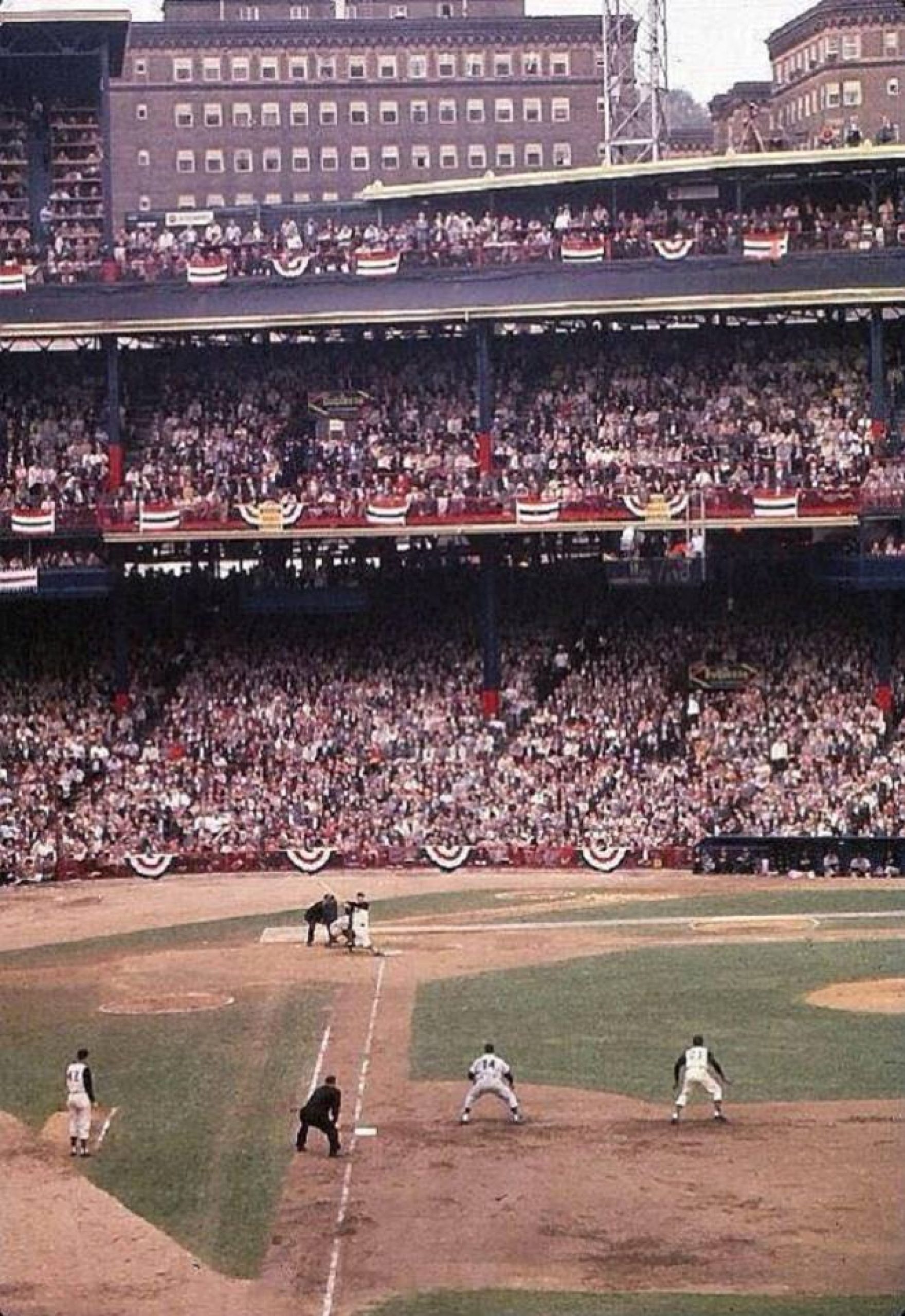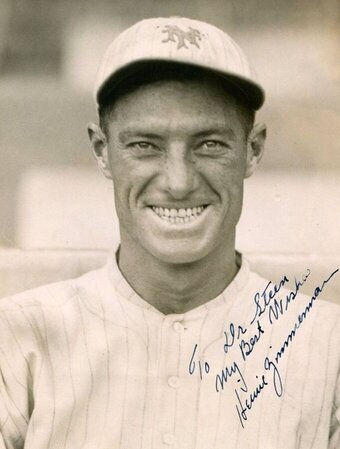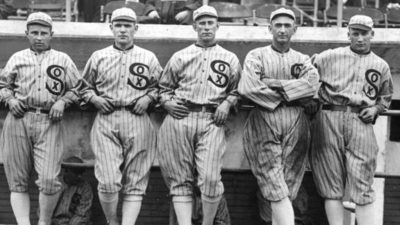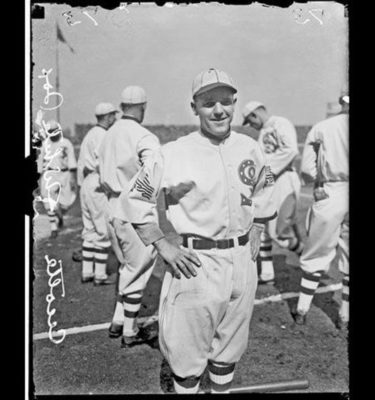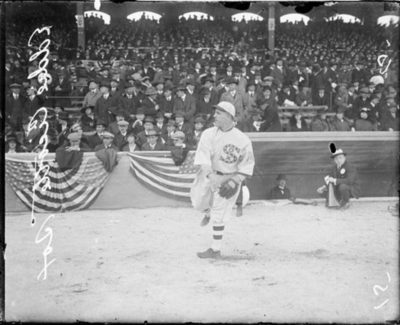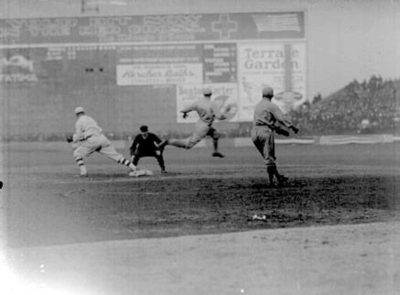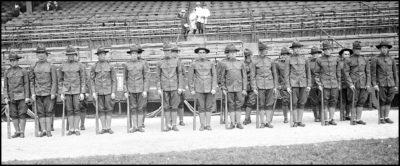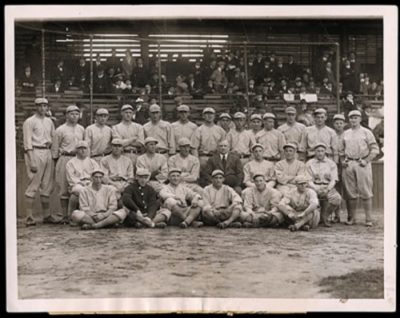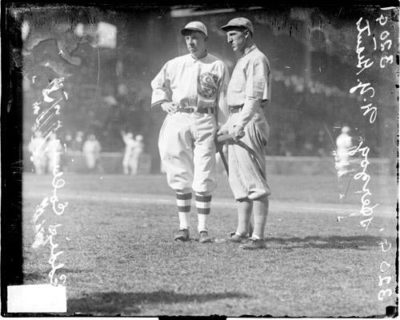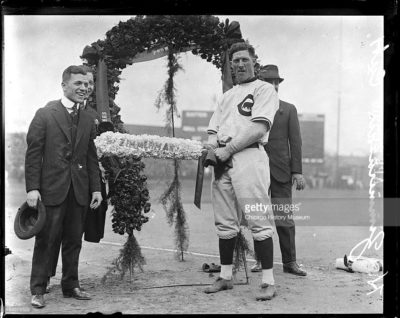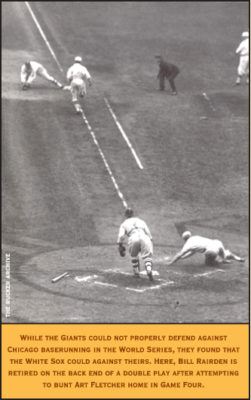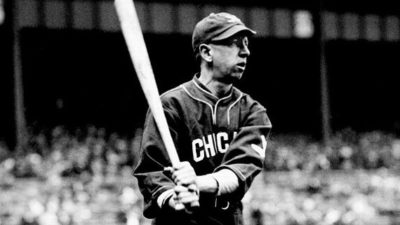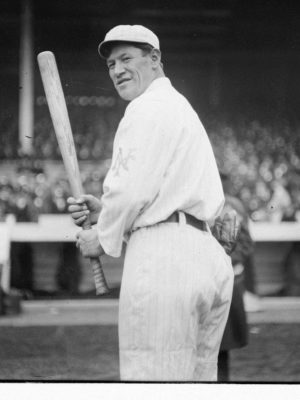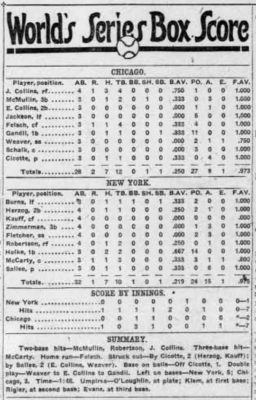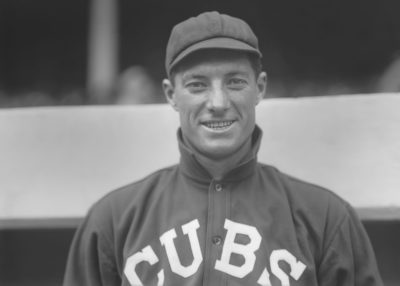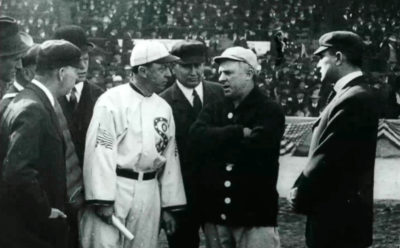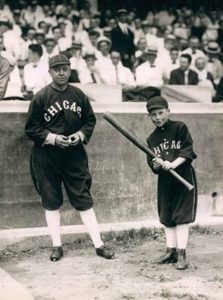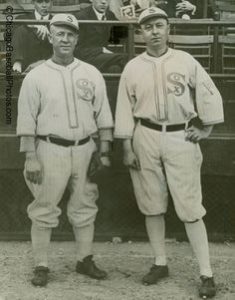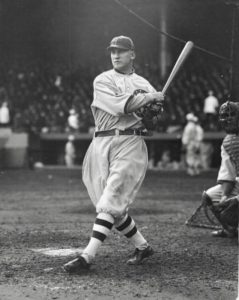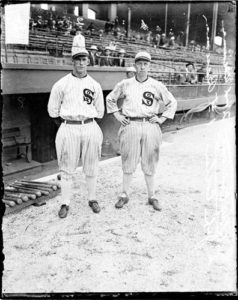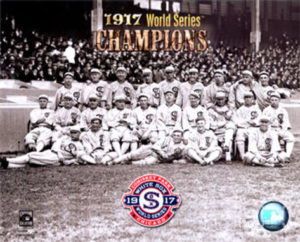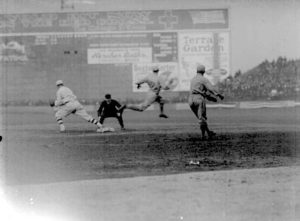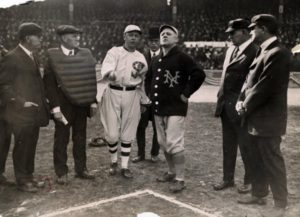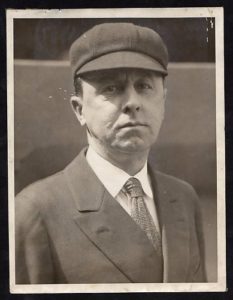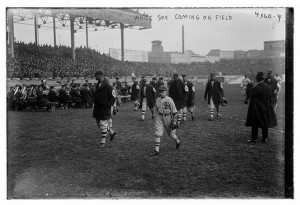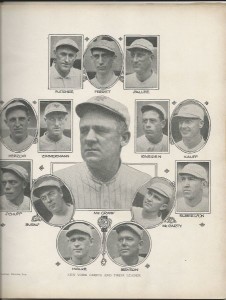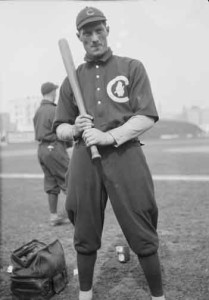Baseball History Comes Alive Now Ranked #2 by Feedspot Among All Internet Baseball History Websites and Blogs!
Guest Submissions from Our Readers Always Welcome!
Scroll Down to Read Today’s Essay
Subscribe to Baseball History Comes Alive for automatic updates (sign-up block found in right side-bar)
As a Free Bonus for subscribing, you’ll get instant access to my two Special Reports: Memorable World Series Moments and Gary’s Handy Dandy World Series Reference Guide!
Baseball in 1917 Photo Gallery
Click on any image below to see photos in full size and to start Photo Gallery:
Baseball “Goats,” Part Three:
Heine Zimmerman and the 1917 World Series
“Who the hell was I supposed to throw to, Bill Klem?” –Famous quote attributed to Heine Zimmerman commenting on the play that made him the goat of the 1917 World Series.
As I continue with my series on “Baseball Goats,” I’ll focus on a controversial play from the 1917 World Series, 103 years ago. It happened in the fourth inning of the sixth and final game of the 1917 World Series (October 6-15) between the White Sox (100-54, .649), managed by Pants Rowland, and John McGraw’s Giants (98-56, .636).
Heinie Zimmerman chases Eddie Collins across the plate
The White Sox led in the Series after five games 3-2. Game Six, played at the Polo Grounds, featured a famous rundown in which Giants’ third baseman Heinie Zimmerman engaged in a futile foot race with speedy future Hall-of-Famer Eddie Collins toward an unprotected home plate. On the play, Collins scored what turned out to be the Series-winning run.
With Collins on third and Shoeless Joe Jackson on first, Hap Felsch hit a bouncer back to the mound. Giants’ pitcher Rube Benton spun and threw to third baseman
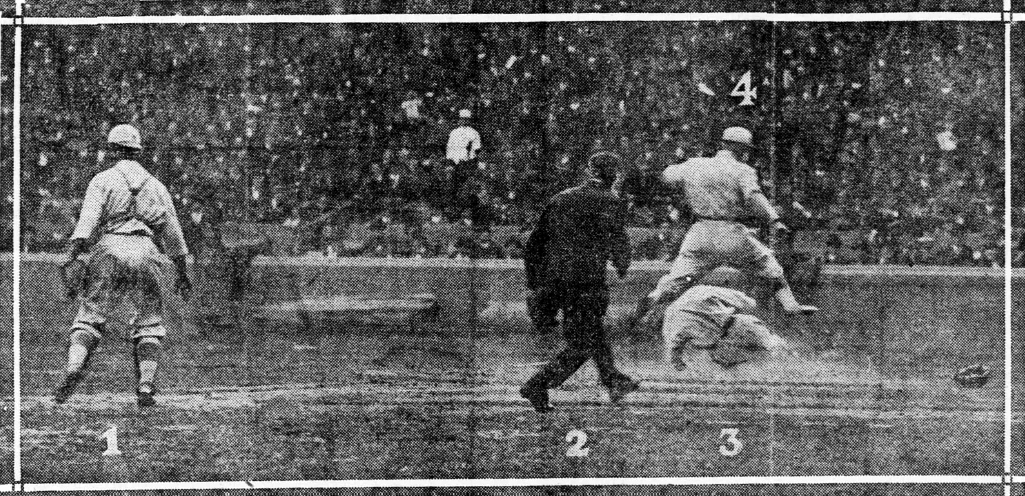
Zimmerman hoping to catch Collins off the bag. Catcher Bill Rariden had run up the third-base line to start a rundown, expecting Benton or first baseman Walter Holke to cover the plate. But neither of them budged and the plate was left uncovered!
This forced Zimmerman to chase the crafty Collins – one of the fastest players in the game – as he scurried toward the plate. Zimmerman was seen in hot pursuit, pawing the ball in the air, futilely attempting to tag him. The New York media blamed Zimmerman for losing the game, and he was added to the list of previous Giants’ World Series goats that included Fred Merkle and Fred Snodgrass. McGraw, however, put the blame on Benton and Holke for failing to cover the plate.
Zimmerman Denies Charges of Throwing the Game
After the Series, Zimmerman, known to be sort of a shady character, found himself having to publicly deny he purposely allowed Collins to score. Conventional wisdom has it that Collins was much faster than Zimmerman, but that wasn’t completely true. Zimmerman was also known for his speed with 175 career stolen bases. Existing photos show that Zimmerman was only a step or two behind Collins, who slid across the plate while Heine jumped over him. Couldn’t he have lunged at Collins to make the tag? I guess we’ll never know.
Heine Zimmerman’s Career
Zimmerman played 13 seasons in the majors (1907-1919) with the Cubs (1907-’16) and the Giants ((1916-’19). Over his career, he hit .295 with 58 home runs and 796 RBIs. His best year was 1912 when he won the National League Triple Crown,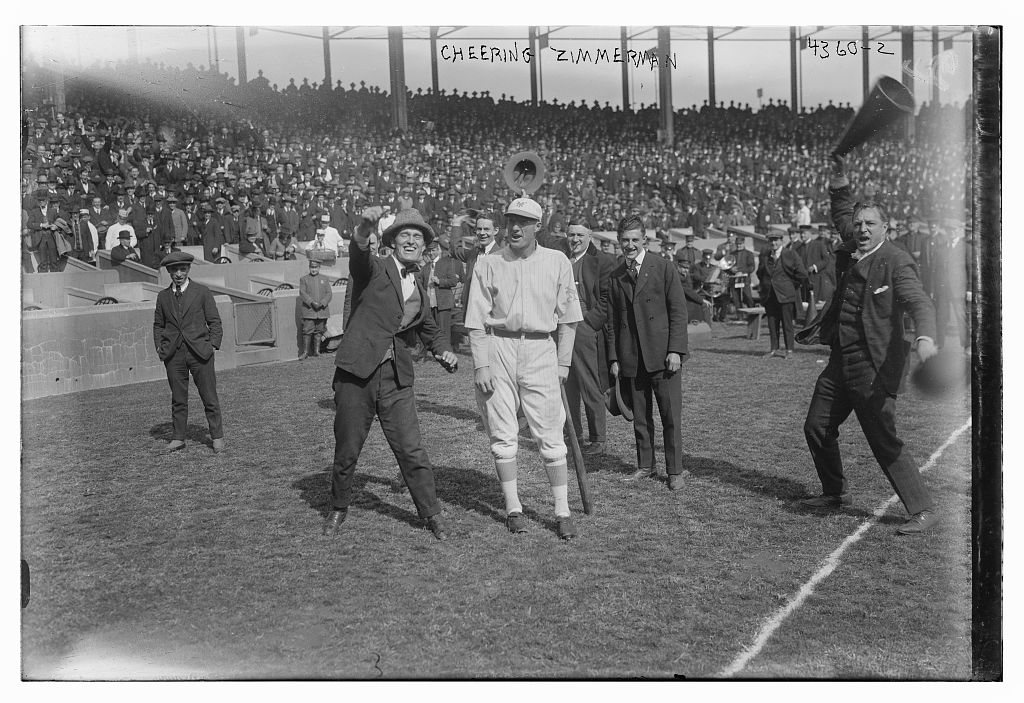 batting .372, with 14 home runs, and 104 RBIs. He also led the league in hits (207), doubles (41), slugging (.571), OPS (.989), OPS+ (170), and total bases (318). He was a member of two World Series championships (1907-’08) with the Cubs, and also the 1910 Cub pennant winner which lost the World Series to the Athletics. Zimmerman was eventually banned for life by Judge Landis due to various accusations of corruption amid the controversies resulting from the 1919 Black Sox scandal.
batting .372, with 14 home runs, and 104 RBIs. He also led the league in hits (207), doubles (41), slugging (.571), OPS (.989), OPS+ (170), and total bases (318). He was a member of two World Series championships (1907-’08) with the Cubs, and also the 1910 Cub pennant winner which lost the World Series to the Athletics. Zimmerman was eventually banned for life by Judge Landis due to various accusations of corruption amid the controversies resulting from the 1919 Black Sox scandal.
Future Hall-of-Famers who appeared in the 1917 World Series: Umpires Bill Klem and Billy Evans; White Sox Eddie Collins, Red Faber, Ray Schalk; Giants John McGraw.
Gary Livacari
Information: Excerpts edited from Heine Zimmerman Wikipedia page
